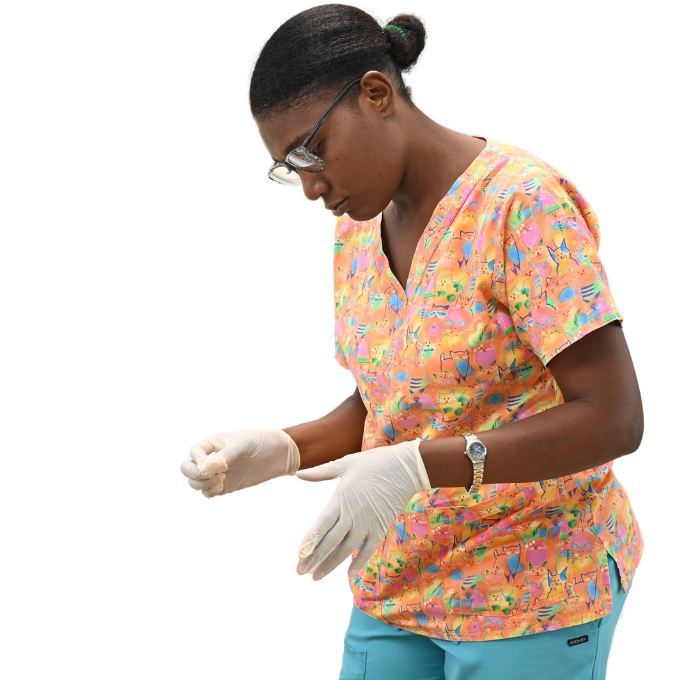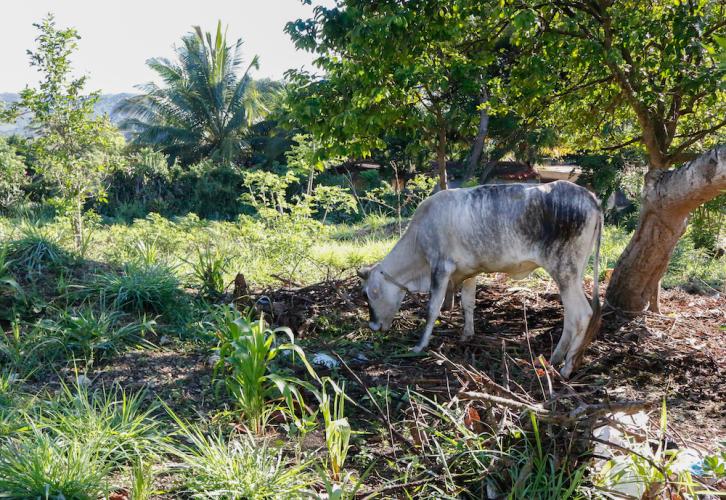“Health equity means providing the same quality of care for all people, whether you are poor or rich.”
Your donation will help Head Emergency Room Nurse Geneviève Edumé and her team care for patients at the only 24/7 ER in southern Haiti.


Food insecurity throughout southern Haiti increases as intense drought causes crops to fail.
“Usually my yard is filled with plantain trees at this time of year, now I will only have one single plantain,” Gemilier Poteau tells us as we walk through her yard. “May is the month for water. Every year I rely upon my calculation for rain in May. But now, I must go out and search for water. I really do not know what I am going to do this year.” The 75-year old, who has lived in Fond des Blancs for decades, tells us that the region is not used to having a drought like this one.
When it began to rain as usual at the beginning of May, community members like Gemilier sewed their seeds and anticipated a fruitful harvest to feed their families and sell their surplus in the local market. But the rains abruptly stopped and never returned. All of the staple crops people depend on—corn, tomatoes, beans, eggplant, spinach, carrots—have shriveled up and died. The story is the same across the country, where crops are failing even in the most fertile areas of Haiti. However, Fond des Blancs has been hit particularly hard because it does not have a river nearby to help supply water that crops desperately need to thrive.
May is the month for water…I really do not know what I am going to do this year.
Gemilier Poteau
The effect of the drought has spared no one. Haiti is a largely agricultural society, and the majority of people live on less than $2 per day. Farmers invest the majority of what little money they have into their crops. Now, the drought has taken all of their money, their food, and their only means of income generation. People working in non-agricultural jobs are heavily impacted as well. Prices on what little produce that is available has been inflated by as much as 100 gourdes, and people have to travel further and further away from home to find the food they need. To make matters worse, the Haitian gourde has been in a freefall over the last year, diminishing the average Haitian’s already-small purchasing power.
Livestock has been affected by the drought, too. For much of the month, there was little to no grass for them to graze on: many died and many others became emaciated. Thankfully, due to recent rains, the grass is coming back and the animals can feed again.
SBH provides nutrition support to hundreds of men, women, and children each year. Nutrition support ranges depending on a person’s needs but often includes distributing vitamins, fortified peanut butter, and meal kits containing dietary staples such as rice. We also help support community agriculture by distributing seeds that families can use to plant gardens. If these plots yield a surplus, families can sell the extra produce in the local markets. But in the face of such widespread drought and fear of famine looming, the hospital needs additional support to meet the demand. Even donations as little as $10 can help us better support our community and ensure nobody in Fond des Blancs starves.
Your donation will help Head Emergency Room Nurse Geneviève Edumé and her team care for patients at the only 24/7 ER in southern Haiti.
